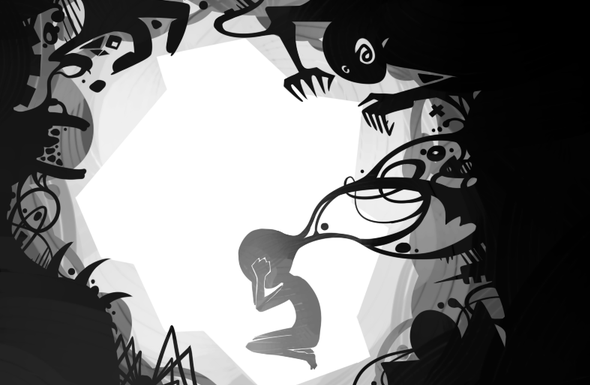
Paranoia to me is similar to anxiety in the sense that the ‘fight of flight’ feeling can take over. There may be no physical threat but your body and mind start racing which can lead to panic attacks or misplaced & even misdirected emotions.
“Paranoia is a thought process believed to be heavily influenced by anxiety or fear, often to the point of delusion and irrationality. Paranoid thinking typically includes persecutory, or beliefs of conspiracy concerning a perceived threat towards oneself”
People can be paranoid about different things, but here are some examples of common types of paranoid thoughts…
You might think that:
- you are being talked about behind your back or watched by people or organisations (either on or offline)
- other people are trying to make you look bad or exclude you
- you are at risk of being physically harmed or killed
- people are using hints and double meanings to secretly threaten you or make you feel bad
- other people are deliberately trying to upset or irritate you
- people are trying to take your money or possessions
- your actions or thoughts are being interfered with by others
- you are being controlled or that the government is targeting you

Paranoia can be hard to define at times, when does a thought or feeling become paranoid?
Suspicious thoughts are more likely to be paranoid if:
- no one else shares the suspicious thought
- there’s no definite evidence for the suspicious thought
- there is evidence against the suspicious thought
- it’s unlikely you would be singled out
- you still have the suspicious thought despite reassurance from others
- your suspicions are based on feelings and ambiguous events
It’s also good to realise that not all suspicions are necessarily paranoid. We all have good reason to be suspicious sometimes. Justified suspicions are suspicions that you have evidence for. For example, if lots of people have been mugged on your street, it is not paranoid to think that you might be mugged too and take care when walking through your area. Justified suspicions can help keep you safe.

So is paranoia a mental health issue or when does it become one?
Paranoia is a symptom of some mental health problems and not a diagnosis itself.
Paranoid thoughts can be anything from very mild to very severe and these experiences can be quite different. This depends on how much:
- you believe the paranoid thoughts
- you think about the paranoid thoughts
- the paranoid thoughts upset you
- the paranoid thoughts interfere with your everyday life
Lots of people experience mild paranoia at some point in their lives – maybe up to a third of us. This is usually called non-clinical paranoia. These kind of paranoid thoughts often change over time – so you might realise that they are not justified or just stop having those particular thoughts.
Paranoia can be one symptom of these mental health problems:
- paranoid schizophrenia– a type of schizophrenia where you experience extreme paranoid thoughts
- delusional disorder(persecutory type) – a type of psychosis where you have one main delusion related to being harmed by others
- paranoid personality disorder

